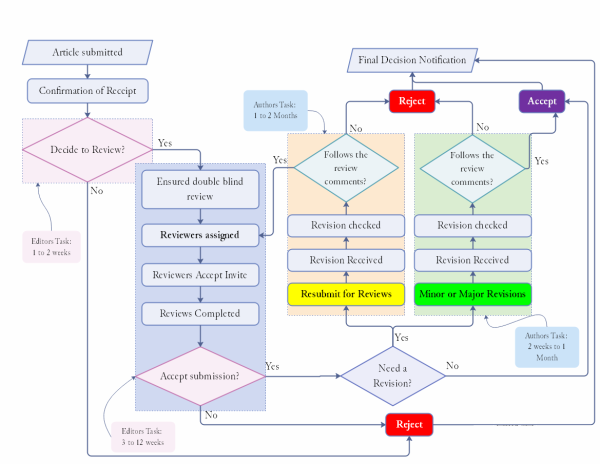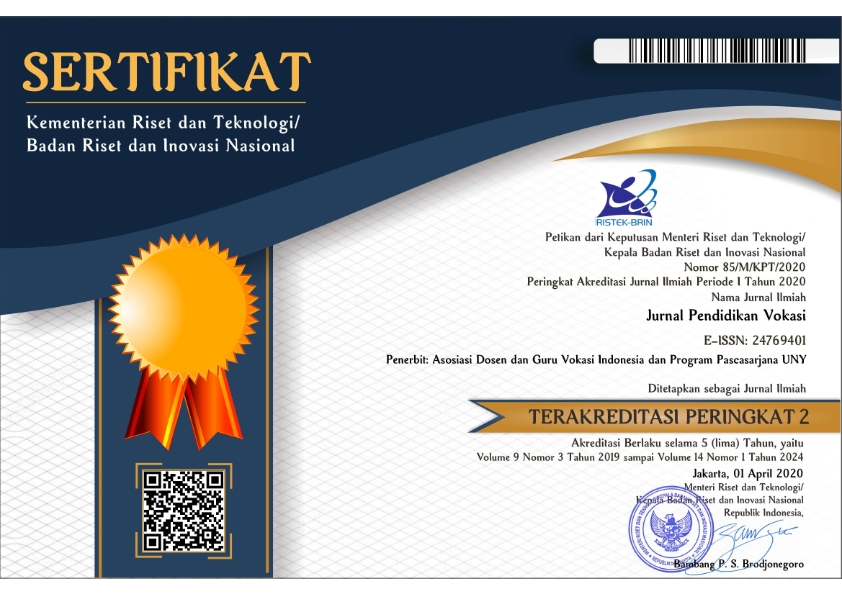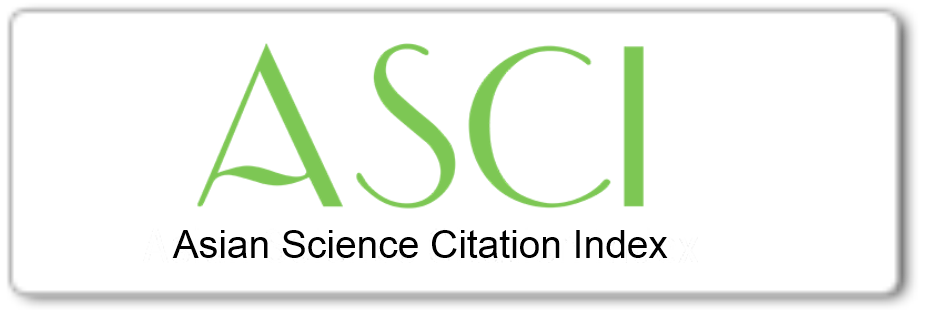- Focus and Scope
- Section Policies
- Peer Review Process
- Publication Frequency
- Open Access Policy
- Archiving
- Publiaction Ethics
- Purchase Hardprint
- Digital Archiving
- Withdrawal of Manuscripts
- Plagiarsm Policy
Focus and Scope
Jurnal Pendidikan Vokasi aims to be a leading platform for the dissemination of innovative and high-quality research in the field of vocational education. The journal focuses on the development of knowledge, theories, and practices relevant to vocational education in various industry sectors, with the aim to support the improvement of skills and competencies of the global workforce. We aim to be a key reference for academics, practitioners, policy makers, and other stakeholders involved in vocational education and training.
1. Vocational Curriculum Development:
- Innovation in vocational curriculum design and implementation.
- Curriculum alignment with industry needs.
- Technology integration in vocational learning.
2. Teaching and Learning Methods:
- Pedagogical and andragogical approaches in vocational education.
- Project-based learning and competency-based learning strategies.
- Use of simulation, internship, and on-the-job training.
3. Evaluation and Assessment:
- Evaluation techniques and tools in vocational education.
- Competency-based performance assessment.
- Measurement and evaluation of learning outcomes.
4. Skills and Work Readiness:
- Development of 21st century skills in vocational education.
- Relationship between vocational education and labor market needs.
- Certification and credentialing programs in vocational fields.
5. Vocational Education Policy and Management:
- Policy analysis of vocational education at national and international levels.
- Management of vocational education institutions.
- Partnership between educational institutions and industry.
6. Vocational Education and Entrepreneurship:
- Integration of entrepreneurship education in vocational programs.
- Business development strategies for vocational graduates.
- Case studies of entrepreneurial success among vocational education graduates.
7. Professional Development of Vocational Teachers and Instructors:
- Training and professional development of vocational teachers.
- Use of technology in vocational teaching.
- Challenges and opportunities in vocational teacher education and training.
8. Global Issues and the Future of Vocational Education:
- Global trends in vocational education.
- Impact of industrial revolution 4.0 and 5.0 on vocational education.
- The future of vocational education in the digital era and globalization.
Jurnal Pendidikan Vokasi accepts manuscripts from various disciplinary perspectives, as long as they are relevant to vocational education and training. We support a diversity of research methodologies, including empirical studies, qualitative studies, and mixed approaches, to provide rich and multidimensional insights into the field.
Section Policies
Articles
Editorial
Peer Review Process
- Editors first review the submitted manuscript, called initial review by the editors. It will be desk evaluated whether the submitted manuscript is suitable for the Jurnal Pendidikan Vokasi based on focus and scope, similarity score by using Anti-Plagiarism Software, methodological flaw, readability of the articles, and adhering to the submitted paper template.
- Furthermore, the manuscript will be sent to at least two anonymous reviewers (Double-Blind Peer-Review).
- The anonymous reviewers' comments are then sent to the corresponding author for necessary actions and responses. Afterward, the editorial team meeting suggested the final decision to the revised manuscript by authors.
- Finally, the Editor will send the final decision to the corresponding author.
- The accepted manuscript then continued to the copyediting and layout editing process to prepare the camera-ready paper.

Publication Frequency
Jurnal Pendidikan Vokasi publishes three issues a year in February, June and November disseminating the result of scientific studies and research
Open Access Policy
This journal provides immediate open access to its content on the principle that making research freely available to the public supports a greater global exchange of knowledge.
Archiving
This journal utilizes the LOCKSS system to create a distributed archiving system among participating libraries and permits those libraries to create permanent archives of the journal for purposes of preservation and restoration. More...
Publiaction Ethics
The journal and its editorial board fully adhere to and comply with the policies and principles of the Committee on Publication Ethics (COPE).
Duties of Editors
Publication decisions
The editorial board of the journal is responsible for determining which submitted articles should be published. Board members consult with reviewers and consider their recommendations while adhering to legal requirements concerning libel, copyright infringement, and plagiarism. Editorial decisions are made impartially and are not influenced by the manuscript's origins, including the authors' nationality, ethnicity, political beliefs, race, or religion.
Confidentiality, disclosure, and conflicts of interest
During the review process, editors must keep information about a submitted manuscript confidential, sharing it only with the corresponding author, reviewers, potential reviewers, and other editorial advisers. Unpublished material from a submitted manuscript must not be used in the editor’s, reviewer’s, or any other reader’s own research without the explicit written consent of the author. Additionally, readers should be informed about the funding sources for the research or scholarly work and whether the funders played any role in the research or its publication, including details of their involvement if applicable.
Author relations
Editors are committed to ensuring that the peer review process at the journal is fair, unbiased, and timely. The journal has implemented policies to handle submissions from editorial board members in a way that maintains impartiality. Additionally, author instructions offer guidance on the criteria for authorship.
Reviewer relations
The journal encourages reviewers to address ethical concerns and potential misconduct in submissions, such as unethical research design or inappropriate data manipulation, and to be vigilant for issues like redundant publication and plagiarism. Reviewers' comments should be provided to authors in full, except when they contain offensive or defamatory remarks. The journal regularly acknowledges the contributions of reviewers and will discontinue the use of reviewers who consistently provide discourteous, low-quality, or late reviews.
Quality assurance
Editors should take all reasonable measures to ensure the quality of the material they publish, understanding that different sections may have varying aims and standards. They should seek confirmation that the research has been approved by an appropriate body, such as a research ethics committee or institutional review board, where applicable. Editors must be vigilant about intellectual property issues and collaborate with their publishers to address any potential breaches of laws and conventions. Any errors, inaccuracies, or misleading statements must be corrected promptly and prominently.
Duties of Reviewers
Contribution to editorial decisions
Reviewers assist the editorial board in making editorial decisions. Reviews should be conducted objectively, with observations clearly articulated and supported by arguments, allowing authors to use them to improve their manuscript. Personal criticism of the author is not appropriate.
Qualification of reviewers
Any referee who feels unqualified to review the research in a manuscript or is unable to complete the review promptly should notify the editor and withdraw from the review process. Reviewers should also avoid reviewing manuscripts if they have conflicts of interest due to competitive, collaborative, or other relationships with any of the authors, companies, or institutions associated with the paper.
Confidentiality
Any manuscripts received for review must be treated as confidential documents. Information or ideas gained through peer review are privileged and must be kept confidential, not used for personal advantage.
Acknowledgment of sources
Reviewers should identify relevant published work that the authors have not cited. References to others' ideas should be properly cited. Additionally, reviewers should inform the editor of any significant similarity or overlap between the manuscript and any other published papers they are personally aware of.
Duties of Authors
Reporting standards
Authors of original research reports should provide an accurate account of their work and offer an objective discussion of its significance. The data presented in the paper must be represented accurately. Authors should be prepared to make raw data publicly accessible in connection with the paper and retain this data for at least two years after publication. Fraudulent or knowingly inaccurate statements are considered unethical and unacceptable.
Originality, plagiarism, and concurrent publication
Authors must ensure that their work is entirely original and that any contributions or words from others are properly acknowledged. Plagiarism in all its forms is considered unethical publishing behavior and is unacceptable. Additionally, submitting essentially the same manuscript to multiple journals simultaneously is also deemed unethical and unacceptable.
Disclosure and conflicts of interest
All authors must disclose any financial or other substantial conflicts of interest in their manuscript that could be perceived as influencing the results or interpretation of their work. Additionally, all sources of financial support for the project should be clearly stated.
Authorship of the paper
The corresponding author is responsible for ensuring that all appropriate co-authors are included in the paper and that no inappropriate co-authors are listed. All co-authors must have reviewed and approved the final version of the paper and agreed to its submission for publication. Those who have made significant contributions should be listed as co-authors, while others who have participated in substantive aspects of the research project should be acknowledged or listed as contributors.
Fundamental errors in published works
If an author identifies a significant error or inaccuracy in a published work, it is their responsibility to promptly inform the journal editor and collaborate with the editor to retract or correct the paper.
Purchase Hardprint
Jurnal Pendidikan Vokasi can be purchased by:
| 50.000 (IDR) |
BANK TRANSFER
- Send the payment receipt to email jpvokasi@uny.ac.id after transfer to:
Bank : Bank Negara Indonesia Branch : BNI UGM Yogyakarta Name : Ririn Susetyaningsih No : 0468970056 Address : Jln. Persatuan Bulak Sumur No 1 Swift Code : BNINIDJAXXX
The journal will be sent immediately after we receive the subscription form and payment receipt.
Send to email: jpvokasi@uny.ac.id
CASH
Those who want to make payment by cash may visit Journal Manager office on the second floor of the General Lecture Building of the Graduate School of Universitas Negeri Yogyakarta, Yogyakarta 55281 Phone +62274-550836 Fax +62274-520326
JOURNAL AVAILABILITY
- Volume 7, No 1, February 2017
- Volume 7, No 2, June 2017
- Volume 7, No 3, November 2017
- Volume 8, No 1, February 2018
- Volume 8, No 2, June 2018
- Volume 8, No 3, November 2018
- Volume 9, No 1, February 2019
- Volume 9, No. 2, June 2019
Digital Archiving
This journal utilizes the Indonesian Publication Index (IPI) system to create a distributed archiving system among participating libraries and permits those libraries to create permanent archives of the journal for purposes of preservation and restoration.
Withdrawal of Manuscripts
Author is not allowed to withdraw submitted manuscripts, because the withdrawal is a waste of valuable resources that editors and referees spent a great deal of time processing submitted manuscript, and works invested by the publisher.
If author still requests withdrawal of his/her manuscript when the manuscript is still in the peer-reviewing process, author will be punished with paying IDR 500.000,- per manuscript, as a withdrawal penalty to the publisher. However, it is unethical to withdraw a submitted manuscript from one journal if accepted by another journal.
The withdrawal of manuscript after the manuscript is accepted for publication, author will be punished by paying IDR 1.000.000,- per manuscript. Withdrawal of manuscript is only allowed after withdrawal penalty has been fully paid to the Publisher. If author doesn't agree to pay the penalty, the author and his/her affiliation will be blacklisted for publication in this journal. Even, his/her previously published articles will be removed from our online system.
Author is not allowed to withdraw submitted manuscripts, because the withdrawal is a waste of valuable resources that editors and referees spent a great deal of time processing submitted manuscript, and works invested by the publisher.
If author still requests withdrawal of his/her manuscript when the manuscript is still in the peer-reviewing process, author will be punished with paying Rp500.000,- per manuscript, as a withdrawal penalty to the publisher. However, it is unethical to withdraw a submitted manuscript from one journal if accepted by another journal.
The withdrawal of manuscript after the manuscript is accepted for publication, author will be punished by paying IDR 1.000.000,- per manuscript. Withdrawal of manuscript is only allowed after withdrawal penalty has been fully paid to the Publisher. If author doesn't agree to pay the penalty, the author and his/her affiliation will be blacklisted for publication in this journal. Even, his/her previously published articles will be removed from our online system.
Plagiarsm Policy
Plagiarism includes but is not limited to:
- Refer and/or quoting terms, words and/or sentences, data and/or information from a source without citing sources in the record citation and/or without stating the source adequately;
- Refer and/or quoting random terms, words and/or sentences, data and/or information from a source without citing a source in the record citation and/or without stating the source adequately;
- Using a source of ideas, opinions, views, or theory without stating the source adequately;
- Formulate the words and/or sentences themselves from the source of words and/or phrases, ideas, opinions, views, or theory without stating the source adequately;
- Submit scientific papers produced and/or published by others as a source of scientific work without expressing adequately.
Prevention
Jurnal Pendidikan Vokasi will ensure that every published article will not exceed a 20% similarity score. Plagiarism screening will be conducted by Jurnal Pendidikan Vokasi using Turnitin and Plagiarism Checker X
Sanctions
- Reprimand;
- Letter of warning;
- Revocation of the article;
- Cancellation of publication.















